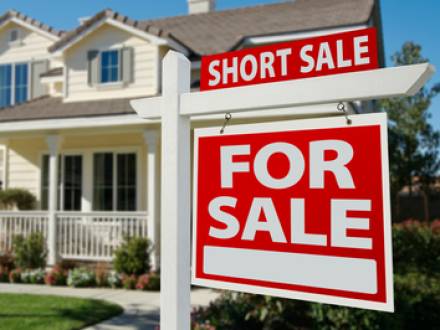Is a Short Sale Better Than Foreclosure for Homeowners in Illinois?
 Many homeowners facing missed mortgage payments wonder how to protect their credit and financial future. For most people, a short sale is nearly always a better option than foreclosure. The first step is to find out whether or not you qualify. An Illinois real estate lawyer can explain the short sale process and walk you through the requirements.
Many homeowners facing missed mortgage payments wonder how to protect their credit and financial future. For most people, a short sale is nearly always a better option than foreclosure. The first step is to find out whether or not you qualify. An Illinois real estate lawyer can explain the short sale process and walk you through the requirements.
What Is the Difference Between a Short Sale and Foreclosure?
Both a short sale and foreclosure mean giving up your home, but they work very differently. A short sale allows you to sell your home for less than you owe and potentially walk away with less damage to your credit. Foreclosure happens when the lender takes legal action to reclaim the property because you have stopped paying your mortgage.
The foreclosure process ends in a court-ordered sale of your home, often at a public auction. However, with a short sale, you find a buyer for your house and ask your lender to accept less than what you owe on the mortgage. If the lender agrees, the home is sold, and you might be able to avoid owing the leftover debt. Foreclosure, on the other hand, takes away your control and causes greater damage to your credit. It can happen quickly once legal proceedings start.
What Are the Requirements for a Short Sale in Illinois?
Short sales in Illinois come with specific rules. Under 735 ILCS 5/15-1401.1, you, as the homeowner, must prove financial hardship, such as job loss, illness, or divorce. Then, you have to submit a real offer from a buyer. Once you do, the lender has 90 days to respond to your request. Even with all the right paperwork, approval is not guaranteed. Lenders have the discretion to deny the sale. However, under 735 ILCS 5/15-1404, they must negotiate in good faith.
What Are the Advantages of a Short Sale for Homeowners in Illinois?
Advantages of a short sale include:
-
Less damage to your credit score compared to foreclosure, making it easier to recover financially
-
Greater privacy, since a short sale is handled privately rather than through a public auction
-
More time to stay in your home during the sale process
-
The chance to negotiate with your lender, which can lead to forgiveness of the remaining mortgage debt
-
More control over the sales process
A short sale can also help you avoid the stress and embarrassment that may accompany foreclosure proceedings. When you work with an attorney, they will negotiate with your lender on your behalf, striving to get you the best deal possible.
What Are the Disadvantages of a Short Sale for Homeowners in Illinois?
There are also downsides to short sales. For example, your credit score will still drop, though usually less severely than with a foreclosure. The process can also take several months while you wait for lender approval, causing uncertainty and stress.
Even if you pursue a short sale, foreclosure can remain a risk. Under 735 ILCS 5/13-205, lenders have up to five years from your default date to file a foreclosure lawsuit. Again, working with an attorney on your short sale can put you at an advantage, speeding up the process.
Schedule a Free Consultation With a Hyde Park, IL Short Sales Attorney
If you are struggling with mortgage payments, a short sale could be an option for you. Talk with a Roseland, IL real estate lawyer at The Sherrod Law Firm, Ltd. today to learn if you qualify. Call 312-321-6910 and schedule your free consultation.



 205 N. Michigan Ave., Ste. 810
205 N. Michigan Ave., Ste. 810 312-321-6910
312-321-6910


